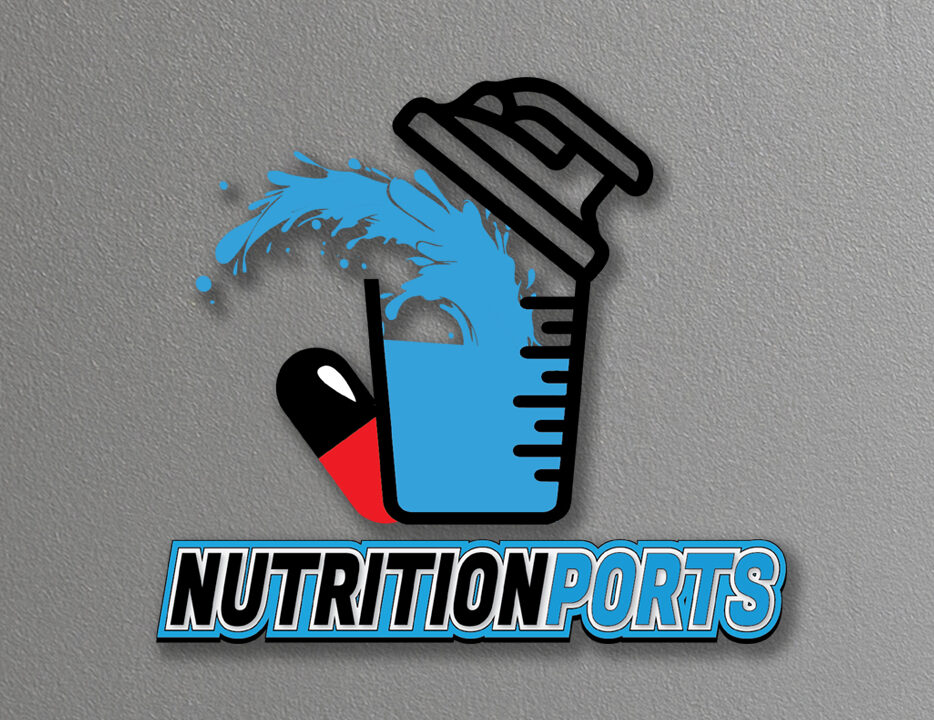In the comparisons of BCAAs vs Glutamine have you ever wondered how to take your training to the next level? When it comes to optimizing both performance and recovery, BCAA and Glutamine for training are two game-changing supplements you need to know about. But how do they really work, and why are they so effective for athletes and fitness enthusiasts? Let’s break down their unique benefits and see how they can help you push your limits and recover faster.

Table of Contents
Quick Comparison
BCAAs: Quick Absorption for Muscle Repair
BCAAs (Branched-Chain Amino Acids) — leucine, isoleucine, and valine — are essential for muscle building. These amino acids are rapidly absorbed by the body, providing immediate support for muscle repair and growth after a workout. By promoting muscle protein synthesis, BCAA for muscle building helps you recover faster and grow stronger. If you’re serious about building muscle, adding BCAAs to your routine is a must.
Key points about BCAAs:
- Directly metabolized in the muscle, offering quick energy and aiding in muscle repair
- Essential for muscle protein synthesis and recovery after workouts
- Can reduce muscle soreness and fatigue, enhancing workout performance

Glutamine: Versatile Support Beyond Muscles
Glutamine is the most abundant amino acid in the body, playing a crucial role in more than just muscle repair. While it’s essential for recovery, glutamine for recovery also supports immune function and gut health. As a primary fuel source for immune cells, it helps keep your body strong and resilient. Additionally, glutamine aids in maintaining the gut barrier function, ensuring your digestive health stays on track. For anyone focused on optimal recovery, glutamine is a powerful ally.
Key points about Glutamine:
- Supports immune system health and gut integrity
- Aids in muscle recovery and can buffer the effects of overtraining
- Important for overall health, beyond just fitness and muscle building

What are BCAAs?
BCAAs, or Branched-Chain Amino Acids, are a group of three essential amino acids: leucine, isoleucine, and valine. These amino acids are termed “essential” because your body can’t produce them on its own—meaning they must come from your diet or supplementation. What sets BCAAs apart is their branched molecular structure and their critical role in BCAA for muscle building. By promoting muscle protein synthesis, BCAAs help fuel muscle growth and support overall performance, making them a must-have for anyone serious about their fitness goals.
The primary benefits of BCAAs include:
- Optimized training intensity
- Improves focus and concentration during workouts, giving you that extra edge
- Speeds up muscle tissue repair, helping you bounce back faster from tough sessions

What is Glutamine?
Glutamine is the most abundant amino acid found in the bloodstream and plays a pivotal role in various bodily functions. It is considered conditionally essential, meaning that while the body can typically produce it in sufficient quantities, during times of stress or intense physical activity, the demand for glutamine can exceed the body’s capacity to synthesize it, making supplementation beneficial.
Key benefits of glutamine include:
- Gut health
- Immune system support
- Muscle recovery

BCAAs Pros & Cons
Pros
✅ Fast-Track Fuel: Provides Immediate Energy for Intense Training
✅ Optimized Leucine Ratio: Triggers Maximum Muscle Growth Response
✅ Hormonal Balance: Supports Healthy Testosterone & Cortisol Levels
✅ Hydration Boost: Enhances Electrolyte Absorption for Peak Performance
Cons
❌ Limited Muscle Growth Alone – Requires Complete Protein Intake
❌ Potential Imbalance – Can Disrupt Essential Amino Acid Ratios
❌ Not Ideal for Everyone – Less Effective if Protein Intake Is Already High
Glutamine Pros & Cons
Pros
✅ Critical for Intense Training: Prevents Muscle Wasting During High-Stress Workouts
✅ Speeds Up Injury Recovery: Essential for Tissue Repair Beyond Just Muscles
✅ Boosts Endurance: Fuels Cells During Prolonged Physical & Mental Stress
✅ Regulates Blood Sugar: Helps Maintain Stable Energy Levels Throughout the Day
Cons
❌ Diminished Effect for High-Protein Diets: May Offer Little Benefit if Intake Is Already Optimal
❌ Potential Blood Sugar Impact: Can Alter Insulin Sensitivity in Some Individuals
❌ Not a Quick Fix: Requires Consistent Use for Noticeable Performance & Recovery Gains

Muscle Recovery and Growth
Muscle recovery and growth are at the core of reaching your fitness goals, whether you’re a dedicated athlete or just starting your fitness journey. The right recovery strategy can make all the difference, and understanding the role of key nutrients like BCAAs and Glutamine is essential. In fact, incorporating the best supplements for workout recovery into your routine can dramatically improve how your body bounces back after intense training sessions, helping you build muscle more effectively and recover faster.
Essential Nutrients for Recovery
BCAAs (Branched-Chain Amino Acids): These are crucial for initiating muscle protein synthesis, a necessary process for muscle repair and growth. By directly fueling the muscle tissues, BCAAs help in reducing exercise-induced muscle damage and speed up recovery time.
- Key Benefit: Accelerates muscle recovery and supports growth.
Glutamine: This amino acid supports the repair and recovery process by boosting the immune system, which can be compromised after intense workouts. Glutamine also plays a role in gut health, ensuring the efficient absorption of nutrients essential for muscle repair.
- Key Benefit: Enhances recovery by supporting immune function and nutrient absorption.
Hydration and Rest: The Unsung Heroes
Beyond nutrients, proper hydration and adequate rest are fundamental for muscle recovery and growth. Water aids in nutrient transport and toxin removal, while sleep and rest allow for the body’s natural repair processes to take place.

Bcaa vs Glutamine: Which One is Better?
In the long debate over BCAAs vs Glutamine, deciding which is better for your workout depends on your goals, training intensity, and overall nutritional needs. Both supplements offer unique benefits that address different aspects of muscle recovery, growth, and health.
BCAAs: Best for Muscle Recovery and Growth
If your primary focus is on enhancing muscle recovery, reducing soreness, and promoting muscle growth, BCAAs might be the better choice. The direct role of BCAAs in muscle protein synthesis and energy production during workouts makes them particularly beneficial for athletes and bodybuilders looking to maximize performance and gains.
- Ideal for: Individuals focused on building muscle mass and improving workout performance.
Glutamine: Best for Overall Recovery and Health
Glutamine, on the other hand, is more versatile in its benefits, supporting not just muscle recovery but also immune function and gut health. If you’re engaging in intense training or looking to support your body’s recovery on a broader scale, Glutamine can be a valuable addition to your supplement regimen.
- Ideal for: Those seeking comprehensive support for recovery, immune health, and maintaining gut integrity, especially during periods of high physical stress.
Making The Choice
Ultimately, the decision between BCAAs vs Glutamine should be based on your individual health and fitness goals:
- For muscle-centric goals: Opt for BCAAs
- For holistic recovery and health: Consider Glutamine

Energy And Performance
Enhancing energy and performance during workouts is a key goal for many athletes and fitness enthusiasts. Understanding how BCAAs and Glutamine can contribute to these objectives is crucial for optimizing your exercise regimen and achieving peak performance.
BCAAs: Boosting Energy and Endurance
BCAAs are known for their significant impact on workout energy and endurance. By providing an additional energy source during prolonged exercise, BCAAs can help delay fatigue, allowing you to train harder and longer.
- Key Benefit: Directly enhances energy levels and improves endurance during workouts, making them ideal for those looking to push their limits in high-intensity or endurance-based training sessions.
Glutamine: Supporting Performance through Recovery
While Glutamine may not directly boost energy in the same way as BCAAs, its role in supporting recovery can indirectly enhance performance. By aiding in the quick recovery of muscles and supporting overall health, Glutamine ensures you can perform at your best consistently.
- Key Benefit: Promotes faster recovery, which can lead to improved performance over time, especially beneficial for athletes undergoing intense training schedules.
Choosing the Right Supplement for Energy and Performance
Selecting between BCAAs and Glutamine for energy and performance enhancements depends on your specific needs:
- For immediate energy boost and endurance: BCAAs are the go-to supplement.
- For sustained performance through better recovery: Glutamine provides comprehensive support.

Best BCAA & Glutamine Supplements for Recovery
Klean Athlete Klean BCAA
One exclusive BCAA brand is Klean Athlete Klean BCAA, renowned for its exceptional quality and rigorous third-party testing. What sets Klean Athlete apart is its commitment to clean ingredients—free from artificial additives, gluten, and GMOs—ensuring you receive only the best for your body. Additionally, all Klean Athlete products are NSF Certified for Sport®, meaning they undergo comprehensive third-party testing to ensure purity and potency.
This BCAA product is perfect for athletes who prioritize the purity of their supplements and seek the highest quality fuel for their bodies. It’s NSF Certified for Sport®, making it a trusted choice for professionals who require guaranteed quality and performance.
Klean Athlete Klean BCAA + Peak ATP® is a premium supplement that combines branched-chain amino acids (BCAAs) in a 2:1:1 ratio with 400 mg of Peak ATP® per serving.
Price Range: $60 – $75 (depending on size and flavor)

LifeSource Vitamins L-Glutamine Powder
Now for those seeking a premium glutamine supplement, LifeSource Vitamins L-Glutamine Powder stands out as a top-tier option. This pharmaceutical-grade product offers 1,000 grams of pure L-glutamine, ensuring optimal muscle recovery and immune support. LifeSource Vitamins is renowned for its commitment to quality and purity, making it a trusted choice among fitness enthusiasts.
Price Range: $44.99

Which is Better For Beginners?
BCAAs vs Glutamine for Beginners: Quick Guide
BCAAs: Ideal for beginners aiming for muscle growth and improved endurance. They help reduce fatigue and support muscle protein synthesis during workouts.
Glutamine: Best for those focusing on recovery, immune support, and gut health, especially as workout intensity increases.
Choosing the Right Supplement:
- Muscle Building & Performance: Start with BCAAs.
- Overall Recovery & Health: Opt for Glutamine.
Conclusion
This blog post offers a concise comparison between BCAAs vs Glutamine, guiding beginners to choose the right supplement for muscle building or comprehensive recovery. We’ve discovered that BCAAs are key for muscle growth and endurance, while Glutamine excels in supporting recovery, immune health, and gut wellness, empowering beginners to make informed supplement choices.




